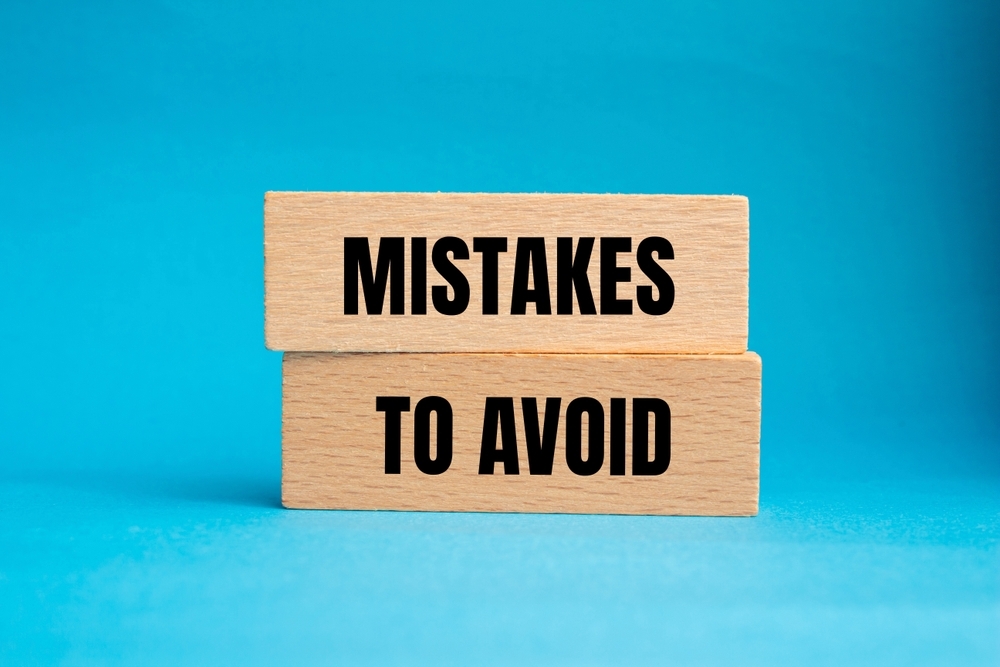
When your new car turns out to be a lemon, frustration can set in quickly. You’ve invested thousands of dollars into what you expected to be a safe, reliable vehicle only to find yourself back at the dealership for the same repairs over and over again. Fortunately, lemon law claims exist to protect consumers from being stuck with defective vehicles.
However, many people make avoidable mistakes that can seriously weaken their claims or cause them to lose their case entirely. Knowing what not to do is just as important as knowing your rights under Virginia’s Lemon Law. Below, we’ll cover the most common mistakes people make in lemon law cases and how to protect your right to a full refund or replacement vehicle.
1. Failing to Report the Problem Promptly
One of the biggest mistakes consumers make is waiting too long to report the defect to the manufacturer or dealership. Under Virginia’s Lemon Law, the defect must occur within a specific time or mileage window (generally within 18 months of purchase or during the manufacturer’s warranty period).
If you wait too long to report the issue or attempt to fix it yourself, the manufacturer may argue that the problem developed after that period and therefore, your claim doesn’t qualify.
Tip: Always notify the dealer or manufacturer as soon as a defect appears. Keep copies of repair orders, written complaints, and any correspondence. These records prove that you acted in good faith and within the required timeframe.
2. Not Giving the Manufacturer a Fair Chance to Fix the Problem
Virginia’s Lemon Law requires that the manufacturer or authorized dealer be given a “reasonable number” of repair attempts to correct the defect. Typically, this means three or more attempts for the same issue, or if the vehicle is out of service for repairs for more than 30 cumulative days.
If you sell the vehicle or stop taking it in for repairs before meeting those requirements, you may undermine your lemon law case.
Tip: Always follow the manufacturer’s repair process. Each service visit builds your case by documenting that you gave them ample opportunity to make it right.
3. Losing or Failing to Keep Repair Documentation
A strong lemon law claim depends heavily on paper evidence. Without documentation, it’s your word against the manufacturer’s.
Too often, consumers toss out repair orders, invoices, or written communications after each visit to the dealership. Later, when it’s time to file a claim, they can’t prove how many repairs were done, when they occurred, or how long the vehicle was in the shop.
Tip: Keep a detailed file of every service visit, invoice, and written complaint. Note the mileage, the dates of repair, and what the dealer said about the issue. Organized documentation can make or break your lemon law case.
Similar Post: Bought a Used Car in Virginia? What the Lemon Law Does (and Doesn’t) Cover
4. Attempting DIY Repairs or Using Unauthorized Mechanics
It’s understandable to want to fix your car on your own or take it to a local mechanic who charges less than the dealership. But doing so can destroy your lemon law case.
Virginia’s Lemon Law specifically requires that repairs be performed by the manufacturer or an authorized dealer. If you or an outside mechanic work on the vehicle, the manufacturer can claim the defect was caused or made worse by unauthorized repairs.
Tip: Stick with the dealership or a service center authorized by your car’s manufacturer. It may cost more upfront, but it preserves your claim.
5. Misunderstanding What Qualifies as a “Lemon”
Not every frustrating car problem makes a vehicle a legal “lemon.” To qualify, the defect must substantially impair the vehicle’s use, value, or safety. It must also persist despite reasonable repair attempts.
For example, a malfunctioning radio won’t qualify, but a transmission failure or brake issue will.
Tip: Speak with a Virginia lemon law attorney to determine whether your situation meets the legal threshold before assuming your vehicle qualifies.
6. Continuing to Drive the Vehicle Excessively
Even after discovering a serious defect, some people continue to drive their car long distances. Doing so can weaken your lemon law case by suggesting the problem wasn’t severe enough to make the vehicle unsafe or unusable.
Additionally, excessive mileage can reduce the refund amount you’re entitled to receive if your case is successful.
Tip: Limit your vehicle use once you believe it’s a lemon. Record mileage, and if possible, park the car until your attorney advises otherwise.
7. Misunderstanding Arbitration Requirements
Unlike some states, Virginia’s Lemon Law does not require consumers to go through a manufacturer’s arbitration or dispute resolution program before filing a lawsuit. While some contracts may include arbitration clauses, you are not automatically bound to use the manufacturer’s program to resolve your claim.
If you choose to participate in an informal arbitration process, such as through the BBB Auto Line, keep in mind that it is voluntary. You can end it at any time, and doing so will not prevent you from pursuing your case in court. However, these programs can sometimes delay your filing, so it’s best to discuss your options with an attorney before deciding.
Tip: Review your warranty or purchase documents carefully. Before entering arbitration, speak with a Virginia lemon law attorney who can advise you on whether arbitration helps or hurts your case timeline and outcome.
8. Signing Settlement Agreements Without Legal Advice
Manufacturers often reach out to consumers early with a settlement offer that seems fair but usually isn’t. These agreements can limit your rights or prevent you from pursuing full compensation later.
Tip: Never sign anything until you’ve had an experienced lemon law attorney review it. An attorney can determine if the offer covers all your losses, including registration fees, taxes, and potential legal fees.
9. Assuming You Don’t Need an Attorney
Many people believe they can handle a lemon law claim on their own, especially when the facts seem clear. Unfortunately, manufacturers have legal teams and adjusters trained to find loopholes. Without representation, it’s easy to make small mistakes that reduce your payout or result in denial.
Tip: A seasoned Virginia lemon law lawyer can navigate the process, communicate with the manufacturer on your behalf, and make sure your case is properly documented and filed before deadlines expire.
10. Waiting Too Long to Seek Legal Help
Virginia’s Lemon Law includes strict time limits. Once the warranty period or statutory window closes, your ability to recover damages may be lost forever.
Even if you’re unsure whether your car qualifies as a lemon, consulting an attorney early ensures that your rights are protected and your evidence preserved.
Tip: Don’t wait for the problem to get worse. The sooner you speak with an attorney, the stronger your case will be.
Protecting Your Rights in Lemon Law Cases
Every lemon law case is unique, but one rule applies to all: documentation and timing are everything. Staying proactive by reporting issues early, keeping detailed records, and seeking qualified legal advice helps you maximize your chances of success.
Attorney James B. Feinman helps Virginia consumers stand up to powerful manufacturers and get the compensation they need when they’re sold defective vehicles. His commitment to personalized service and deep understanding of lemon law cases ensure your claim is handled with skill and care from start to finish.
Do You Have a Lemon Law Case? Call James B. Feinman, Attorney at Law, for a Free Consultation
If you believe your car qualifies as a lemon, don’t face the manufacturer alone. James B. Feinman has years of experience helping Virginia consumers resolve lemon law cases quickly and effectively. He’ll review your situation, explain your options, and fight to recover the full refund or replacement you deserve.
Call 434-216-0166 or complete the online contact form to schedule your free consultation today. Let an experienced Virginia lemon law attorney stand up for your rights and get you back on the road with confidence. James B. Feinman, Attorney at Law represents consumers all throughout Virginia, including Lynchburg, Arlington, Fairfax, and Norfolk.
Disclaimer: This blog is intended for informational purposes only and does not establish an attorney-client relationship. It should not be considered as legal advice. For personalized legal assistance, please consult our team directly.
